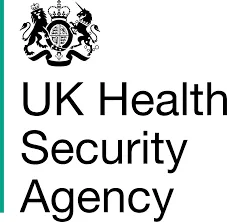Antimicrobial resistance is one of the leading problems facing mankind and the burden is expected to rise significantly in the next few years causing millions death worldwide. Antimicrobial Research Theme is a network of world leading multidisciplinary research across Institute of Pharmaceutical Science (IPS) that integrates research strengths of IPS with Clinical Academic Group (CAG) at King's Health Partners (KHP), our strategic partnership with UK Health Security Agency (UKHSA), Defense Science and Technology Laboratory, Industrial Collaborations and research partnership with different UK universities with the aim to address the key challenges posed by antimicrobial resistance. The AMR Theme is working on a number of research priority areas to:
- Develop new classes of antimicrobial agents
- Develop new technologies to tackle the burden of AMR
- Advance basic and translational research in AMR
- Advance our understanding of AMR in key public health pathogens
- Combat antimicrobial resistance using an integrated approach
Key activities
Members of the Antimicrobial Research Theme at the Institute of Pharmaceutical Science are actively involved in developing a wide range of innovative techniques, novel chemical tools, and next-generation antimicrobial agents. These endeavours are aimed at addressing the critical research questions and unmet clinical needs in the field of antimicrobials. Recognizing the urgency of the situation, theme members are collaborating closely with the strategic partner, the UK Health Security Agency, as well as forging partnerships with several esteemed UK universities and international agencies, such as the National Institute of Allergy and Infectious Disease (NIAID) and the TB Alliance. Through these collaborative efforts, the theme members are moving forward with various discovery science projects, with the ultimate goal of advancing them to pre-clinical development and and eventually bringing them to clinical settings in the near future.
A few examples of the diverse and impactful projects being conducted within the Antimicrobial Theme Area can be found in the projects tab below. By pushing the boundaries of scientific knowledge and innovation, the members of the Antimicrobial Research Theme are playing a crucial role in the global fight against antimicrobial resistance, working towards a future where effective treatments for infectious diseases are available to all.
Our People
The Antimicrobial theme is a collaborative and interdisciplinary effort, involving academic staff from diverse disciplines such as medicinal chemistry, biophysical chemistry, microbiology, molecular biology, pharmacology, biochemistry, and pharmaceutics. These experts from various fields join forces with a common objective: addressing the urgent and critical issue of antimicrobial resistance (AMR). AMR is widely recognized as one of the most significant public health emergencies of our time, posing a grave threat to global health and patient care. By bringing together professionals from different disciplines, the Antimicrobial theme fosters a cross-cutting approach to tackling AMR. This collaborative framework enables a comprehensive understanding of the issue, allowing for innovative solutions and breakthroughs. The diverse expertise of the academic staff provides a multidimensional perspective on AMR, ensuring a holistic approach to combatting this global challenge.
Our Partners
The UK Health and Security Agency (UKHSA) is a public body that aims to protect the health and well-being of the UK population from current and emerging threats. One of its key priorities is to tackle the global challenge of antimicrobial resistance (AMR), which occurs when bacteria, viruses, fungi and parasites evolve to resist the effects of antibiotics and other antimicrobial drugs. AMR poses a severe risk to human health, animal health and the environment and could lead to millions of deaths and increased healthcare costs by 2050.
The UKHSA conducts and funds research on various aspects of AMR, such as:
- Developing new diagnostic tools and surveillance systems to detect and monitor AMR in humans, animals and the environment
- Supporting the discovery and development of new antimicrobial drugs and alternative therapies
- Evaluating the effectiveness and safety of existing antimicrobial drugs and stewardship interventions
- Understanding the drivers and transmission pathways of AMR across different sectors and settings
- Assessing the economic and social impacts of AMR and the potential benefits of mitigation strategies


